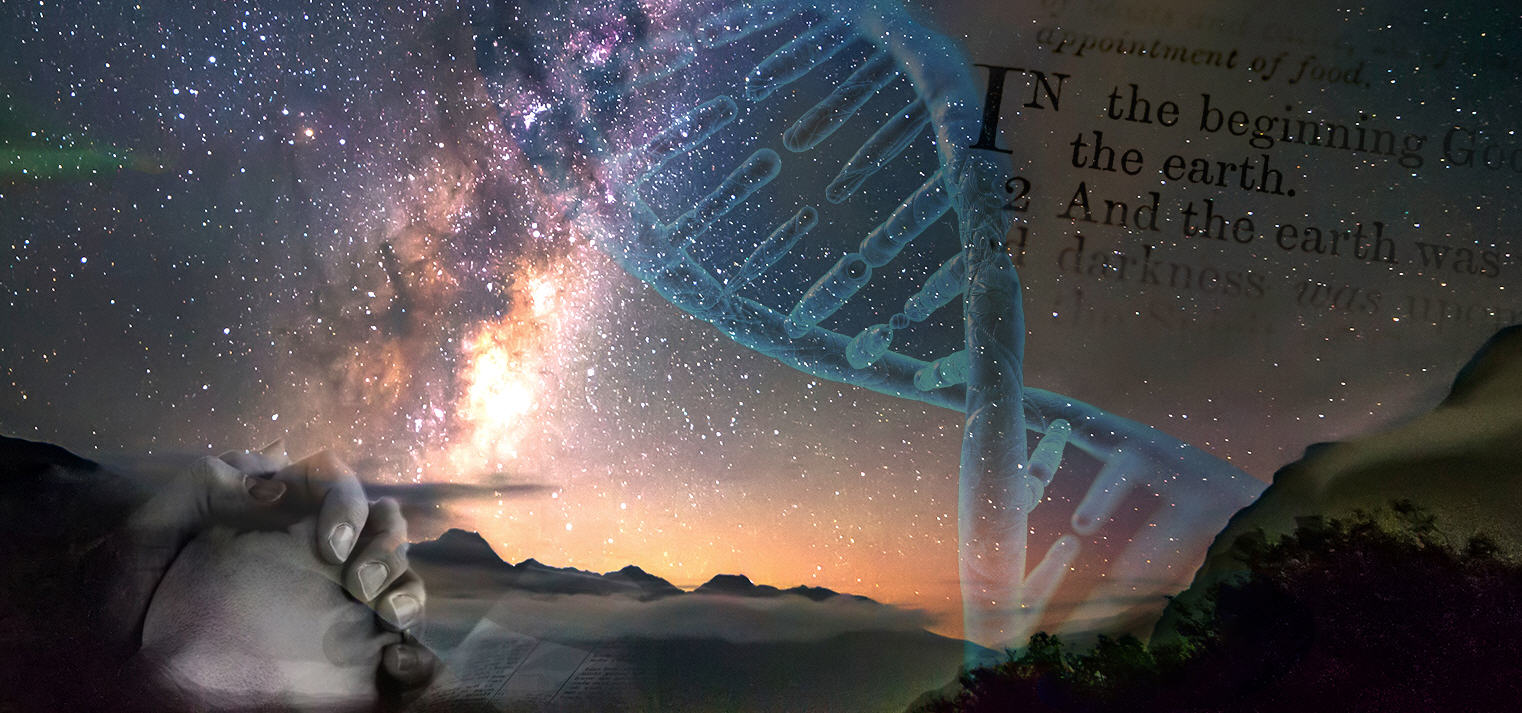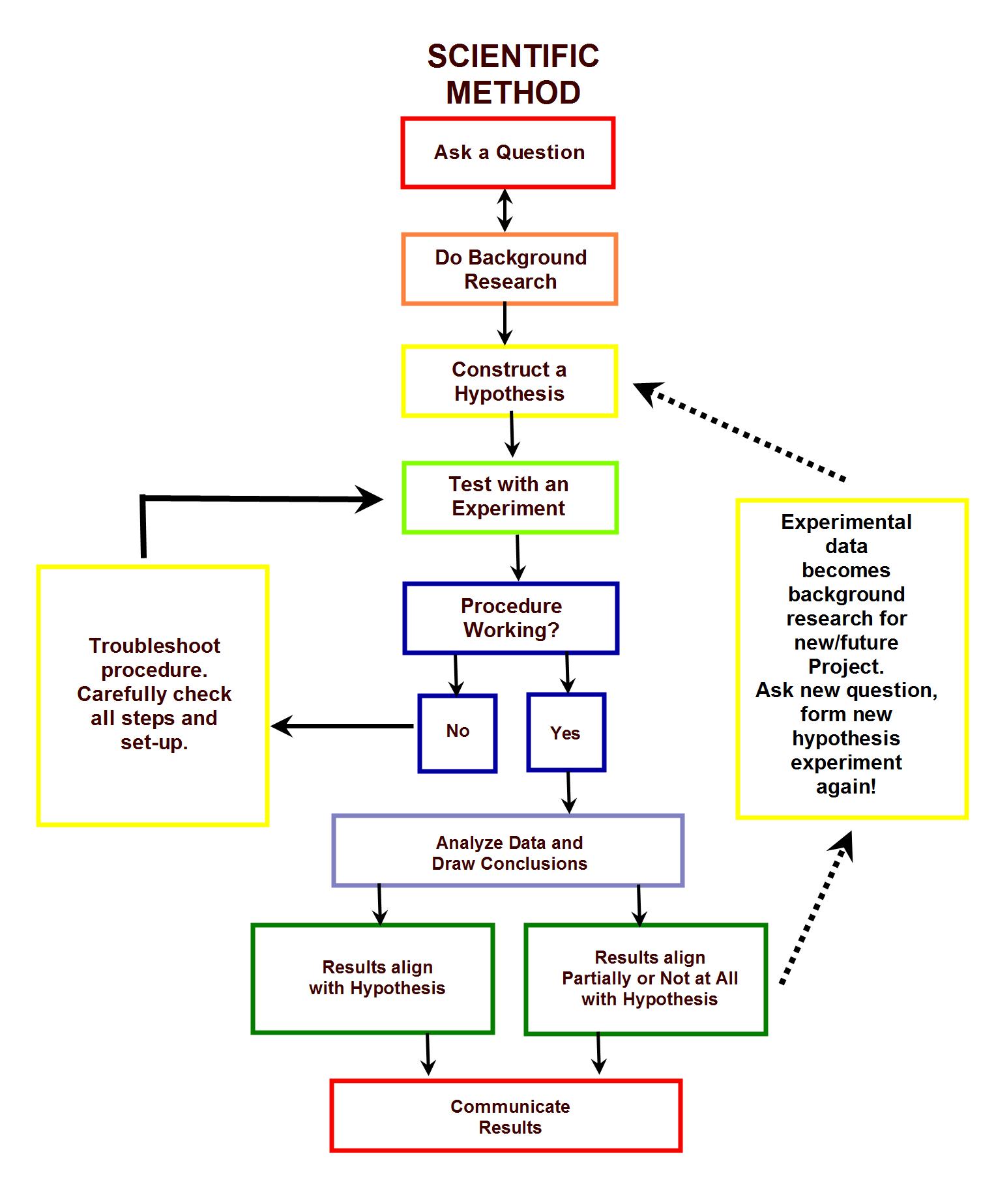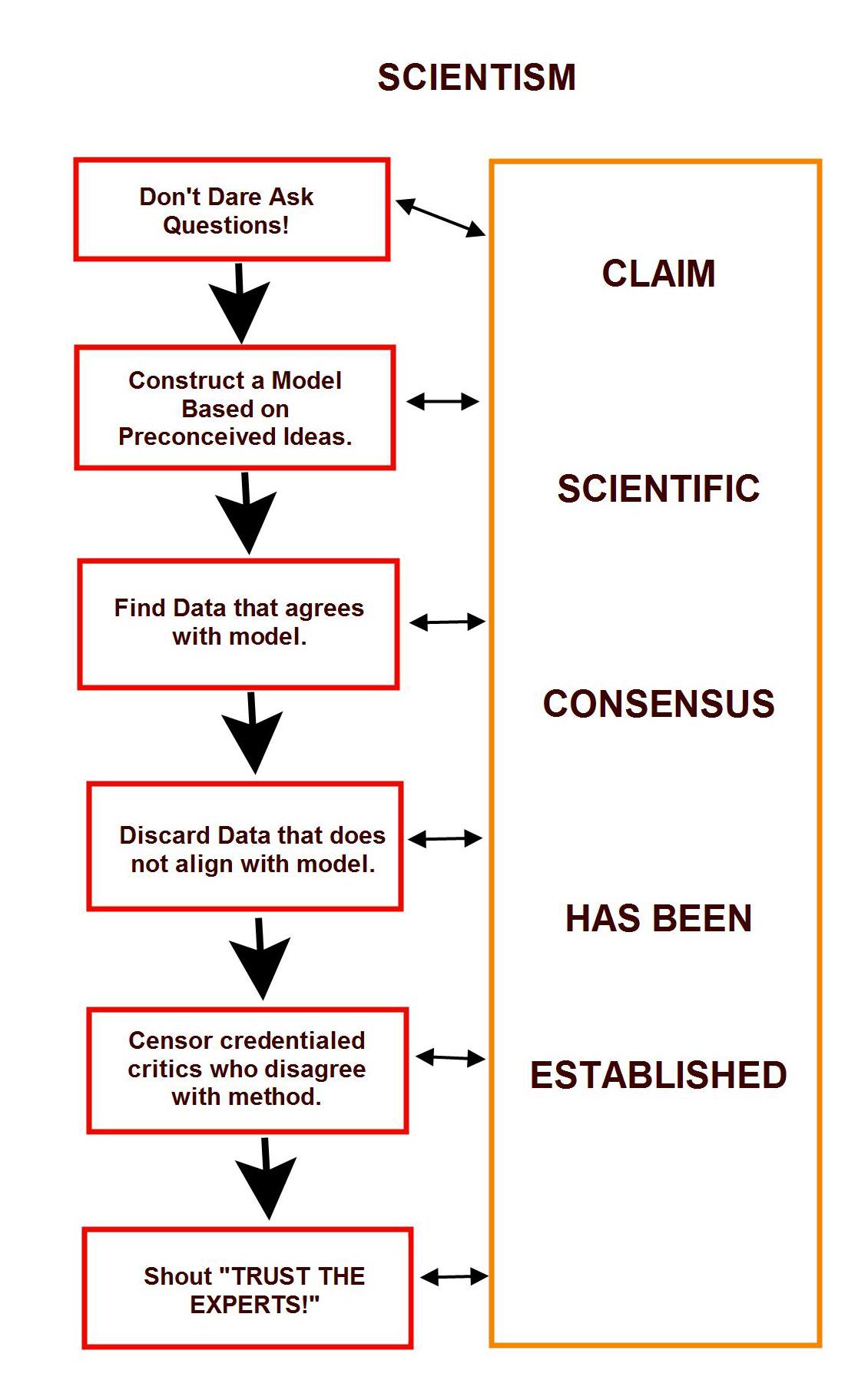SCIENCE VERSUS SCIENTISM

SCIENCE VERSUS SCIENTISM
By Michael K. Farrar, O.D.
© God’s Breath Publications
Science and Scientism: Beliefs, Assumptions, Conclusions
Science is knowledge gathered through repeatable and verified experiments. It is the practice of discovering truth in an orderly fashion and recording that truth so that it can be repeatedly discovered by others. As Science and the “Scientific Method of Experimentation” continues knowledge builds upon knowledge and we can better understand the intricacy and complexity of God’s Creation; how it works and why it functions the way it does. We also gain an awesome respect for the creative, intelligent and amazing complexity God used to bring ALL of creation into existence by simply His spoken Word.
Science in the pure sense of the word above is not in opposition to the Bible or Creationism. Science in the true sense of the word is just a way of discovering truth about God’s creation. It is a tool that man can use to discover more about how the creation of the Lord functions.
Scientism on the other hand can take on different forms.
Scientism can mean to a scientist that unless it can be proven through the use of the scientific method, it cannot be verified as truth. This takes on the materialistic tone where nothing exists or is true unless it can be proven through science. This instills in science an atheistic characteristic. There is no room for a supreme personal being for all things can exist, develop and evolve without intervention by a creator. While some scientists follow this path and say there is a place for God in the world just not in science, they forget that God is the God of all creation not just in spiritual and religious matters.
Scientism can also mean to the scientist that as theories are advanced to explain some of the unknowns in science, these theories can be accepted or promoted as fact until they are disproven. This causes truth to become relative or transient. The current theory becomes current truth, but as soon as new knowledge disproves that theory, new truth is developed. This gives scientism a religious characteristic. Faith is necessary to believe something which is not absolutely provable by the scientific method. This is a structure of truth which is very precarious when you consider individuals reject religious input because of it. An extreme position for an atheistic scientist would be that there is no such thing as God and we simply live in a creation of matter and energy where physical and chemical laws rule by chance.
At this point, I would like to share a quotation from Beri Manoushagian. “Science deals with the smallest part of our experiences, and because its conclusions are based upon induction, nothing in science can ever be true. No real knowledge can exist in any science discipline, if by knowledge we mean certain and incorrigible information. The best secular scientists have admitted this fact, but it has not become common knowledge in society because it would threaten the world view of secularists who want to control the thought processes of citizens.”
Here are a few charts that can help you to sort things out.


“Scientism” is a term that is used to describe the philosophy that truth can be found only in science or only through science. It is an obvious error, but many people are not familiar with the term. It is a pervasive belief in modern society, because people are not taught correct epistemology and have been deceived by the successes of technology. Scientism also assumes that science can answer all questions about human beings, including what we classify as the spiritual or psychological aspects of humans. But that is a philosophical blunder of monumental proportions.
Facts
There are certain facts or information which can be learned from experimentation through the scientific method. These facts we call knowledge and we can consistently repeat experiments to verify that they are true. These facts we call truth can be called this since we have established them to be so and because they are in accordance with certain natural laws and facts that God has laid down in nature.
God has created certain physical and natural laws which govern the universe. They operate on their own through the power of the “will” of God and are true because God has established them to be so. This is not to say that there may be supernatural laws which can supersede them through God’s power, but they are as true as we can see from our perspective.
Beliefs
Because we all are raised different than everyone else and are exposed to different amounts of knowledge and experiences, we each develop our own world view of where our place in creation is and how we came to be. We use our logic, reason, thinking and emotions to interpret the facts which we come in contact with.
Our beliefs constantly come under modification through our lives as we experience pain, suffering, happiness, etc. As we learn new facts we re-evaluate how we interpret the facts we have learned.
Assumptions
From the pre-conceived beliefs and ideas that we have, we develop assumptions as to how to view facts that we learn. We begin to use our beliefs and ideas as filters to screen and modify facts that we are in contact with.
These assumptions are theories which we view as plausible ideas that can be accepted as possible or as absolute depending on how strong our beliefs are concerning the conclusions we might draw from our assumptions of the facts.
Conclusions
You can see where this structure of thought is taking us. People with different beliefs and ideas, can look at the same body of truth or knowledge and develop different assumptions and therefore develop different conclusions.
This reasoning or logic process carries over into science when scientism develops. Scientists with certain beliefs develop assumptions about life and its purpose. From this reasoning they interpret facts which they discover and make conclusions based on their assumptions.
We need to recognize that both the materialistic scientist and the scientist who is a Christian are both violating the methods of pure science when they make their conclusions based on their belief or faith. There is nothing wrong with this as long as the person admits that their theories are based on this type of “personal bias” interpretation method.
This method of developing theories can not be better exemplified than with the theory of evolution. This theory has been promoted for hundreds of years as fact in all aspects of society. We see it promoted on the television, in periodicals, in textbooks and in all avenues of education. Somewhere the “theory” of evolution has become the “truth” of evolution. It makes sense in its own right, but it is simply one interpretation or conclusion from the same body of facts. It needs to be clarified that the theory of evolution is just that a “theory”, just as the theory of divine creation is just a “theory”. Neither can be proven by science for they cannot be verified completely and adequately through normal and accepted scientific methods.
Below is a portion of the passage in Genesis where it is recorded God created the heavens and the earth. The intelligence, creativity and power for all of Creation to come into existence was made possible by the Lord God almighty and Him alone. It was not a random chain of events left to chance. There was intelligence, power and heavenly creativity that gave birth to all of creation out of nothing.
The Creation
Genesis 1:1-2:3
“In the beginning God created the heavens and the earth. 2 And the earth was a [a]formless and desolate emptiness, and darkness was over the surface of the deep, and the Spirit of God was hovering over the surface of the waters. 3 Then God said, “Let there be light”; and there was light. 4 God saw that the light was good; and God separated the light from the darkness. 5 God called the light “day,” and the darkness He called “night.” And there was evening and there was morning, one day.
6 Then God said, “Let there be an expanse in the midst of the waters, and let it separate the waters from the waters.” 7 God made the expanse, and separated the waters that were below the expanse from the waters that were above the expanse; and it was so. 8 God called the expanse “heaven.” And there was evening and there was morning, a second day.
9 Then God said, “Let the waters below the heavens be gathered into one place, and let the dry land appear”; and it was so. 10 And God called the dry land “earth,” and the gathering of the waters He called “seas”; and God saw that it was good. 11 Then God said, “Let the earth sprout vegetation, [k]plants yielding seed, and fruit trees on the earth bearing fruit according to their kind [m]with seed in them”; and it was so. 12 The earth produced vegetation, plants yielding seed according to their kind, and trees bearing fruit with seed in them, according to their kind; and God saw that it was good. 13 And there was evening and there was morning, a third day.
14 Then God said, “Let there be lights in the expanse of the heavens to separate the day from the night, and they shall serve as signs and for seasons, and for days and years; 15 and they shall serve as lights in the expanse of the heavens to give light on the earth”; and it was so. 16 God made the two great lights, the greater light to govern the day, and the lesser light to govern the night; He made the stars also. 17 God placed them in the expanse of the heavens to give light on the earth, 18 and to govern the day and the night, and to separate the light from the darkness; and God saw that it was good. 19 And there was evening and there was morning, a fourth day.
20 Then God said, “Let the waters teem with swarms of living creatures, and let birds fly above the earth in the open expanse of the heavens.” 21 And God created the great sea creatures and every living creature that moves, with which the waters swarmed, according to their kind, and every winged bird according to its kind; and God saw that it was good. 22 God blessed them, saying, “Be fruitful and multiply, and fill the waters in the seas, and let birds multiply on the earth.” 23 And there was evening and there was morning, a fifth day.
24 Then God said, “Let the earth produce living creatures according to their kind: livestock and crawling things and animals of the earth according to their kind”; and it was so. 25 God made the animals of the earth according to their kind, and the livestock according to their kind, and everything that crawls on the ground according to its kind; and God saw that it was good.
26 Then God said, “Let Us make mankind in Our image, according to Our likeness; and let them rule over the fish of the sea and over the birds of the sky and over the livestock and over all the earth, and over every crawling thing that crawls on the earth.” 27 So God created man in His own image, in the image of God He created him; male and female He created them. 28 God blessed them; and God said to them, “Be fruitful and multiply, and fill the earth, and subdue it; and rule over the fish of the sea and over the birds of the sky and over every living thing that moves on the earth.” 29 Then God said, “Behold, I have given you every plant yielding seed that is on the surface of all the earth, and every tree which has fruit yielding seed; it shall be food for you; 30 and to every animal of the earth and to every bird of the sky and to everything that moves on the earth which has life, I have given every green plant for food”; and it was so. 31 And God saw all that He had made, and behold, it was very good. And there was evening and there was morning, the sixth day.
And so the heavens and the earth were completed, and all their heavenly lights. 2 By the seventh day God completed His work which He had done, and He rested on the seventh day from all His work which He had done. 3 Then God blessed the seventh day and sanctified it, because on it He rested from all His work which God had created and made.”